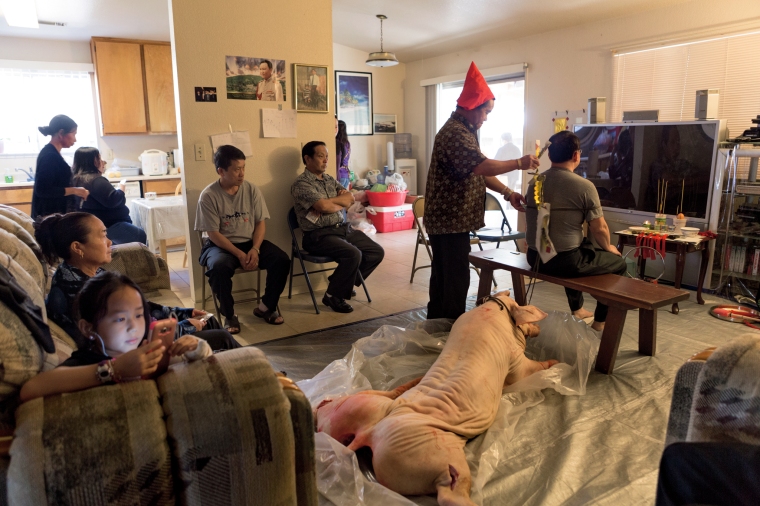Traditional Hmong shaman curing ceremony

As I was flipping through my latest copy of National Geographic, title “The Healing Power of Faith”, I couldn’t help but stop and stare at the picture published above. The picture is part of an article within the magazine called “Mind Over Matter”, which discusses different forms of medical treatment and their effectiveness as opposed to the placebo effect. This specific picture shows a Hmong shaman performing a traditional curing ceremony.
While the dead pig in the center of the room is not hard to miss, it is the pig (and shaman’s) presence alongside the young girl playing on a smart phone that makes this picture so interesting. The coexisting nature of the traditional healer and modern technology shows the infiltration of technology, even within the most sacred of circumstances. It is scenes like this that show us that though the world has been launched into an unimaginable age of technological innovation, tradition and faith remain deeply rooted in the lives of many.


